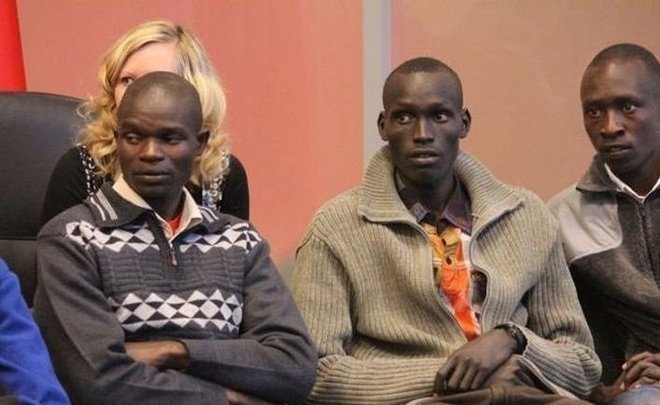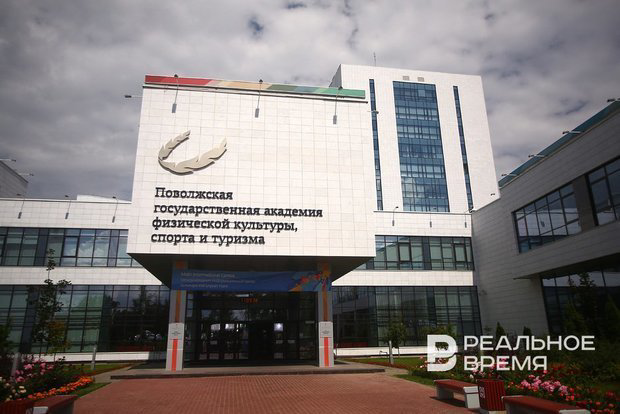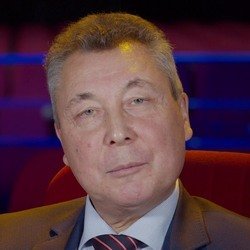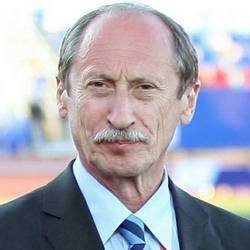How four Kenyans planned to compete under Russia’s flag
They even competed in our country’s championship but…

Kenyan runner Amos Kibitok won the Russian Athletic Championship eight years ago, on 3 August 2015. In Cheboksary, Chuvashia’s capital, he finished first in the 5,000m run performing out of competition and outrunning official champion Alexey Popov from Voronezh. Journalist of Realnoe Vremya’s sports staff Jaudat Abdullin recalls the failed experience of sports cooperation between Russia and Africa.
Kibitok, Kipkemboy, Kiplagat and Chepseba
Several years ago Russia planned to develop sports cooperation with Africa and Kazan was directly involved in this. There were four athletes at that moment — above-mentioned Amos Kibitok, Isaac Kipkemboy, Evans Kiplagat and Nicholas Chepseba. They were assumed to become students of Volga Academy of Sport and Tourism soon. Three of them were university age — 19 years, one was older — 25.
Realnoe Vremya’s correspondent saw the quartet of Kenyan that arrived in the academy to get acquainted, together with this project’s supervisor President of the Russian Athletic Federation Valentin Balakhnichev.
During the Kenyans’ trip, they met with the management and leading teachers of the Volga academy, familiarised themselves with the joint project. This is how the Africans’ training programme in Kazan was outlined, they were going to learn Russian during the year and at the same time compete for the Volga academy. During the year, the adaptation process was due to result in their official admission to the academy if exams were successfully passed. This was envisaged by a trilateral agreement signed between the Volga sports academy, the Russian Athletic Federation and the athletes themselves. In the future, the Africans could get the chance of becoming Russian citizens and defend colours of our national team, even at world championships and Olympic Games. In any case, the Kenyans wanted this very much as well as the management of the federation if the promising athletes progressed on the track.
As for the oldest of them, 25-year-old Evans Kiplagat, it was known he was a bronze medallist of the 34th Eurasian Marathon in 2014. However, he was 5.30 minutes behind the winner from the same country. He was third in the Vienna Marathon in 2011, he was nearly a minute behind the winner, a Kenyan again. It isn’t correct to go by the marathon runners’ time, the weather and technical approaches can seriously correct the final results. But Kiplagat’s best time 2.09:22 anyway looked more optimistic than the best time of any of the ten candidates to the national team of Russia. None of them ran faster than 2.11:00.

Kipkemboy didn’t hide his desire to become a Russian
As for Kiplagat’s prospects in the 10,000m, they didn’t look so glittering. His best time 29.48:08 gave way to our national team’s athletes’ time. However, it isn’t ruled out that the 10,000m is a contributory distance for the Kenyan, so to speak. While he specialises in marathon and cross-country competitions, in other words, in 10 km on track and half-marathons.
As for Nicholas Chepseba, he specialises in the 5,000m, Isaac Kipkemboy — in the 1,500m and finally Amos Kibitok does in 3,000m hurdles. They all are 19 years, in other words, they are too young for these athletic disciplines. And they were planned to compete in the disciplines that were traditionally weak both in Soviet and, moreover, Russian athletics.
None of the Kenyans applied for the Russian passport, though Isaac Kipkemboy didn’t hide this desire. For this, the athletes had to learn Russia Balakhnichev especially insisted on, enter a university and run, as fast as possible.
The Kenyans were ready to learn Russia making an impression of diligent and shy young people who were shocked with the sports infrastructure they saw during their first visit to the capital of Tatarstan.
Borzakovsky’s coach protested against cooperation

Nevertheless, some members of the Russian athletic community chaired by Russia’s honourable coach Vyacheslav Yevstratov, a mentor who brought out Olympic champion Yury Borzakovsky who gave an interview in the federal press insisting that money shouldn’t be invested in dark-skinned athletes and other coaches didn’t agree with the ideas of this triarchy — the federation, the Volga academy, the Kenyan runners. It is necessary to create our own centres how Americans do. To engage institutes that would work for these centres: departments of physiology, biochemistry, pharmacology. Yevstratov cites Americans’ experience where there was created a similar centre with local athletes training in 800, 1,500 and 5,000m groups. Yevstratov concluded his speech saying: “Of course, it is easier to take a couple of dark-skinned athletes… What should we do when they are gone, look for new ones? Of course, it is up to the federation what to do next. But I have expressed the opinion of coaches.”

So what’s the result?
A year later, might-have-been member of team Russia Evans Kiplagat competed at the Olympics in Rio de Janeiro. But he competed for Azerbaijan becoming this country’s first marathon runner. However, Kiplagat competed with the surname Barkovet, but this is no surprise, Africans have several surnames as well as the Brazilians where he debuted at the Olympics.
Azerbaijan bet on foreigners, Haile Ibragimov, champion of the Universiade in Kazan and the European Indoor Championship, successfully competed in athletics for this country. His experience also helped Kiplagat-Barkovet to obtain citizenship of Azerbaijan as soon as possible, without mandatory quarantine of three years, and now he is a member of the local national team.
Amos Kibitok changed citizenship in 2016. Now he is Aras Kaya, and this is team Turkey Kibitok-Kaya brought a silver from the European Championships in the 3,000m hurdles for during the same year. Isaac Kipkemboy and Nicholas Chepseba continue running for Kenya but without great success. Russian manager of the failed project Valentina Fedyushina then worked with javelin thrower Vera Rebrik, a Crimean athlete who joined team Russia. The project’s Turkish manager Onder Ozbilen who found Ethiopian Hevan Abeye for team Turkey had to accept not only the end of the “Tatar-Kenyan project” in 2016 but also with a two-year ban of her athlete for doping. But her name was Turkish — Elvan Abeylegesse.
Valentin Balakhnichev left the post of president of the Russian Athletic Federation that, in fact, has been subject to mass repressions from the international federation since 2015. Yusup Yakubov ceded the chair of rector of the Volga academy to Rafis Burganov who now chairs the university renamed as Volga University of Sport and Tourism. Yury Borzakovsky managed to become the Russian national team’s head coach and leave this post.